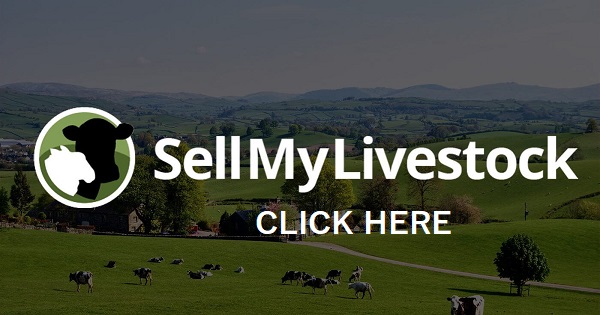South Africa has a large spectrum on farming and is rich in Agriculture and Farming. The climate is perfect to farm with fish, livestock, crops and vegetables. In the north of Southern Africa you will find more maize, soybeans and cotton farmers where as the Southern part you will get crops like Wheat, Barley, Canola and Oats. Small Scale Farming in South Africa – Crop to Livestock.
How profitable is Small Scale Farming and Can you make a living?
There are thousands of South Africans farming small scale. The secret is to find your market before farming with a certain products. Make sure that your area need what you are going to offer. High end small scale farming products like chicken farming, pig farming and vegetables are always in high demand and selling these products won’t be hard. Specified crops like rosemary or strawberries attracts a different user and you need to make sure that you will sell your product before starting your small scale farming business.
Major sectors of the agricultural and farming industry in South Africa
- Livestock
- Crops (Grains and Vegetables)
- Agriculture
- Forestry and Fisheries
- Wool & Cotton
- Dairy
All over South Africa you will find Agricultural Silos storing Grains, Sugar , and animal feed. Approximately 30% of South Africa’s total summer maize, sunflower, sorghum and Soya beans and winter grain wheat and barley yield is handled by a network of silos.
The objective is to receive grain and oil seeds from farmers, to handle it and to store it safely for future use.
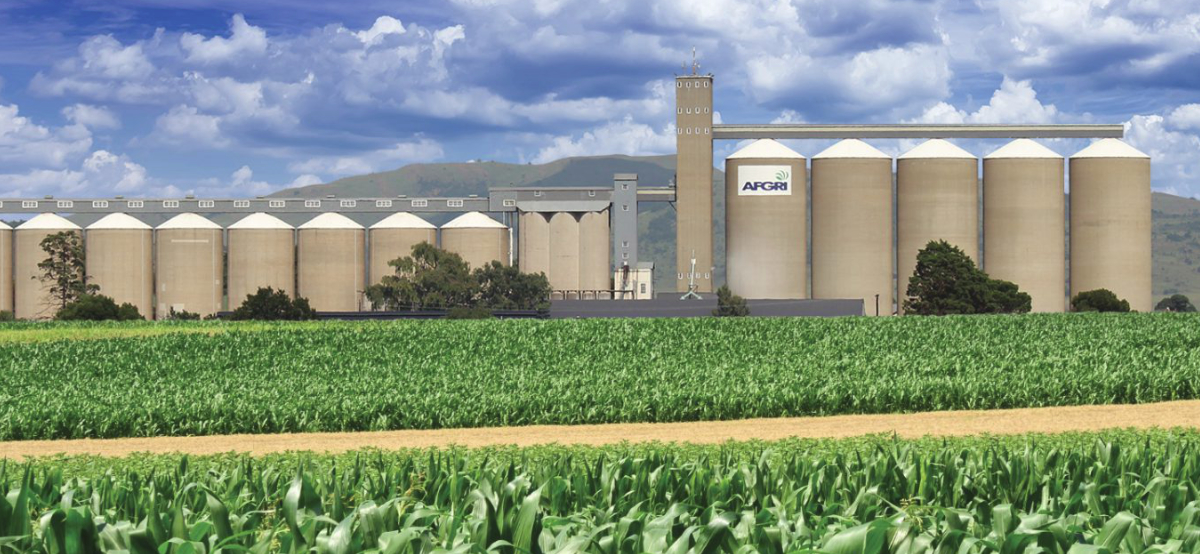
Pig Farming in South Africa
Deciding what breed will be best for you is a difficult choice as there are are many breeds of pigs to farm with in SA. Farming with potbelly pigs won’t be as profitable as farming with Landrace pigs. South Africa consumes about 200 000 tonnes of pork meat (fresh and processed) per year. Our own production amounts to 182 000 ton (2.6 million slaughter pigs with an average carcass mass of 70 kg) and SA import another 25 000 tonnes for consumption.
Pig farming is one of the most productive farming businesses one can venture into. You realize profits very early and the cash flow into the business is quick. The trick is to use a good breed, a good feeding program and good management. Pigs can either be sold as porkers at four months or as baconers at six months. The main source of expenses in pig farming is feed. You need to calculate your budget perfectly and continue to hunt for better feed prices as that will determine your profit margins when your pigs are ready for the market.
When you are a pig farmer and want to slaughter your pigs, you need to do that at a certified abattoir. Once or twice a week an health inspector will visit the abattoir and will inspect that the pigs are healthy and ready for human consumption
Sugar Farming in South Africa
The South African sugar industry is one of the world’s leading cost competitive producers of high quality sugar and makes an important contribution to employment, particularly in rural areas, to sustainable development and to the national economy. It is a diverse industry combining the agricultural activities of sugarcane cultivation with the manufacture of raw and refined sugar, syrups, specialized sugars and a range of by-products.
The cane growing sector comprises 21 926 registered sugarcane growers farming in KwaZulu-Natal and Mpumalanga. Sugar is manufactured by six milling companies with 14 sugar mills operating in these cane growing regions. The industry produces an estimated average of 2.2 million tons of sugar per season. About 60% of this sugar is marketed in the Southern African Customs Union (SACU). The remainder is exported to markets in Africa, Asia and the Middle East.
Sugar is manufactured by six milling companies with 14 sugar mills operating in these cane growing regions. The industry produces an estimated average of 2.2 million tons of sugar per season.
Livestock Farming in South Africa
South Africa produce some of the best beef cattle and the 10 most popular breeds are:
- Bonsmara
- Brahman
- Nguni
- Beefmaster
- Simmentaler
- Santa
- Gertrudis
- Angus Simbra
- Drankensberger
- Afrikaner
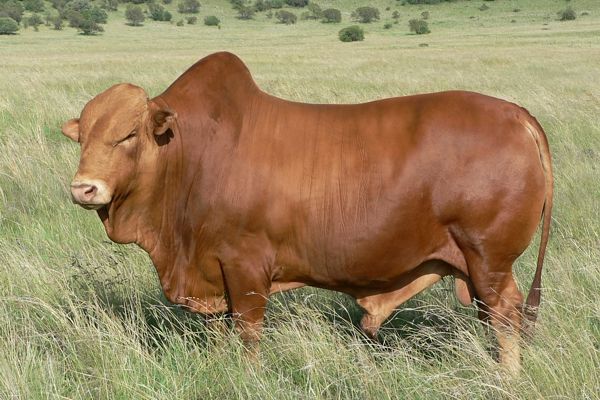
South Africa’s livestock industry, recovering from the impact of a recent devastating drought and disease outbreak, is likely to create demand for feed additives thanks to an increasing population, a surge in demand for quality meat products and a spike in consumer spending, especially among the middle class.
Preference of meat as a key source of protein in South Africa helped raise consumption levels to 4.5 million tonnes and together with a recovering poultry industry is expected to drive the performance of the feed additives market.
Poultry Farming South Africa
South Africa’s appetite for chickens are at an all time high. Chicken sales are blooming both in supermarkets and restaurants. Poultry farming is growing daily in SA as the country have an extremely high unemployment rate and meat chickens has a quick turnaround for investment.
Ross Broilers and Lohmann Layers are some of the top chickens to farm with when you are starting a small scale farming business.
The poultry industry is the biggest agricultural industry in South Africa, employing in excess of 100,000 people throughout the value chain. About 3 million birds a day are slaughtered in the SA and 5.5 million chickens are imported from South America per week. Read 50 Most Popular Chicken Breeds to Farm With
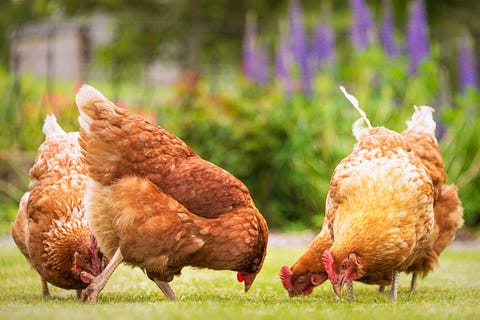
Crop Farming in South Africa
Types of Crops to farm with in SA
- Wheat
- Barley
- Maize
- Soya
- Sorghum
- Canola
- Sunflowers
- Oats
- Cotton
- Vegetables
- Sugar Cane
- Nuts
Grains are much needed for the survival of South Africa. Maize is most widely grown, followed by wheat, sugar cane and sunflowers.
Many Fruits are exported, as are locally produced wines and flowers.
South Africa is not only self-sufficient in virtually all major agricultural products, but is also a net food exporter.
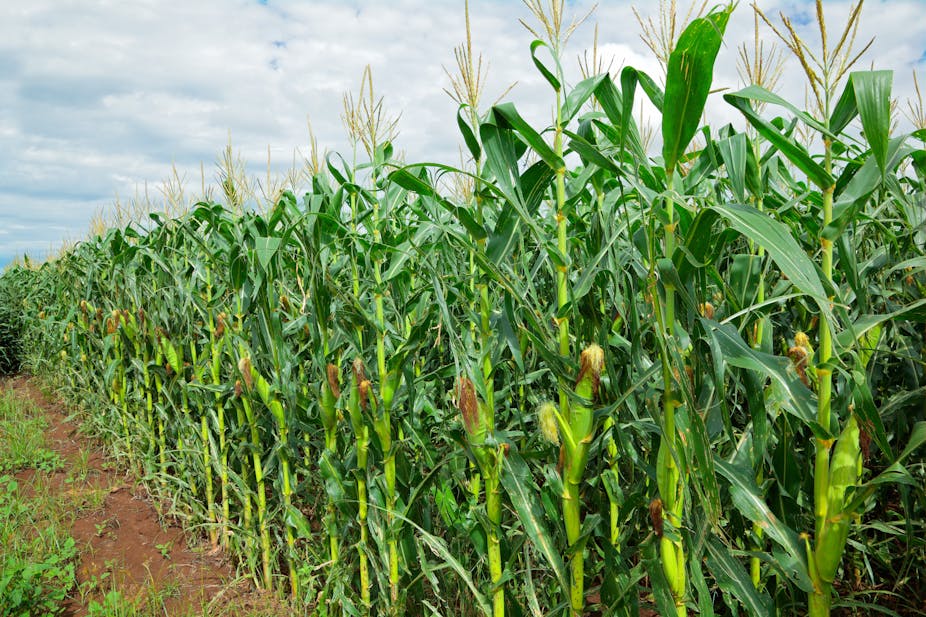
Sheep Farming South Africa
Sheep farming plays an important role in South African agriculture and makes a major contribution in respect of animal fibre, meat and dairy products. There are about 20 sheep breeds in South Africa. The Merino, Dorper, Mutton Merino, Dohne Merino, Dormer and the Black-headed Persian are all found here. They are farmed for wool and meat.
List of most popular sheep to farm with in South Africa
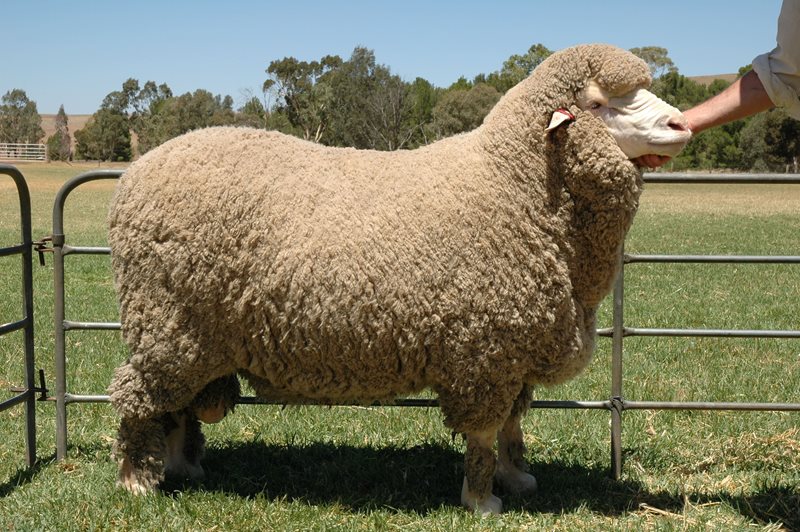
South African Meat Merino
The South African Meat Merino or SAMM is a wool and meat sheep originating in South Africa, but now found throughout the world. The SAMM is derived from the German Merinofleischschaf animals imported into South Africa from Europe in 1932

Dorper Sheep
The Dorper is a South African breed of domestic sheep developed by crossing Dorset Horn and the Blackhead Persian sheep. The breed was created through the efforts of the South African Department of Agriculture to breed a meat sheep suitable to the more arid regions of the country.
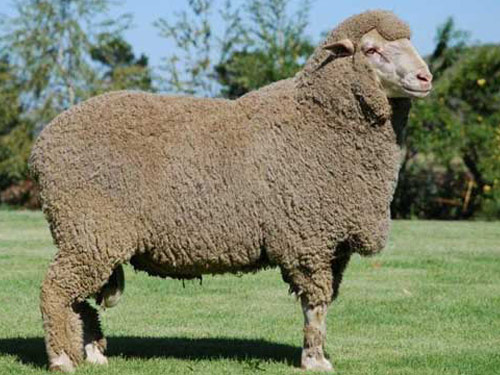
Dohne Merino
The Dohne Merino is a breed of domestic sheep from South Africa. The breed was started in the late 1930s by the South African Department of Agriculture. It was developed by interbreeding Peppin-style Merino ewes and German Mutton Merino rams

Van Rooy sheep
The Van Rooy, also known as the Van Rooy White Persian, is a breed of domestic sheep native to South Africa. The Van Rooy was first developed in 1906 by J. C. van Rooy, a South African Senator and farmer in the Bethulie district.
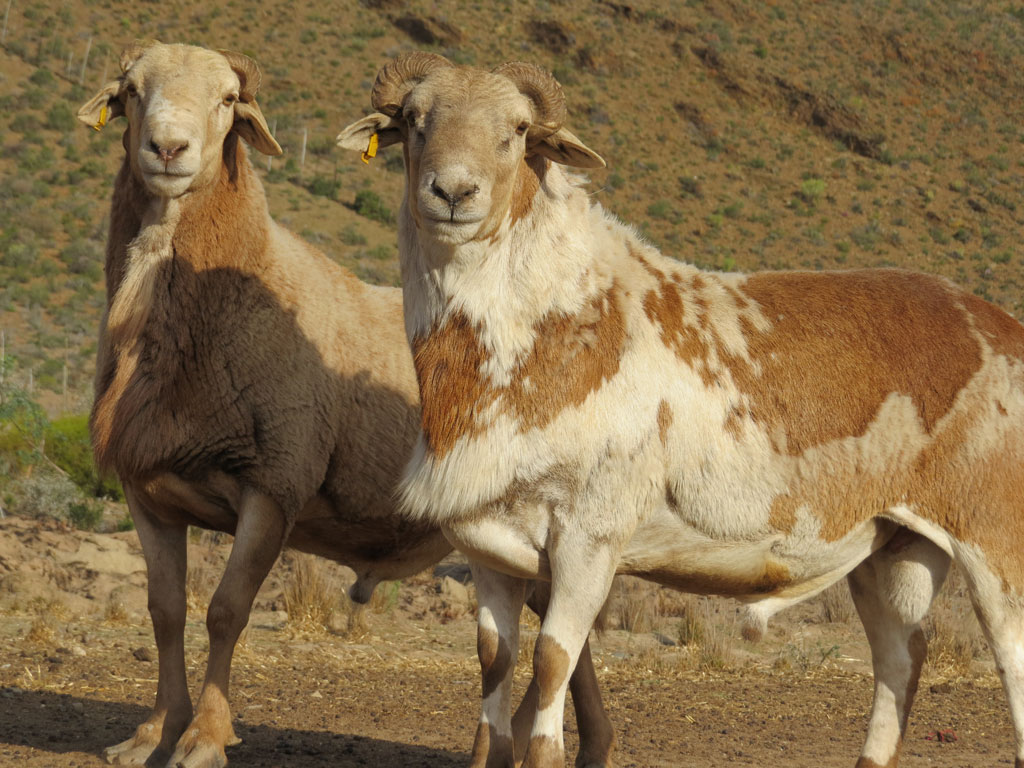
Meatmaster
The Meatmaster is a breed of domestic sheep native to South Africa. Bred in the early 1990s from various hair sheep breeds, the Meatmaster was created with the goal of improving the meat characteristics of African fat-tailed sheep breeds.
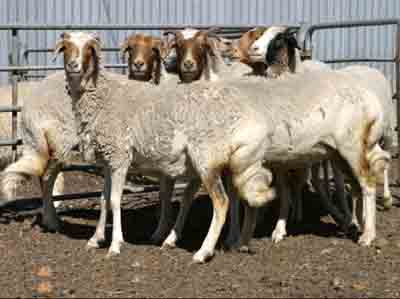
Afrikaner Sheep
The Afrikaner sheep is a breed of fat tailed, hair sheep indigenous to South Africa.
Applying for a Small Scale Farming Grant in South Africa
Applicants who want to farm may apply for an LRAD grant, but have to make a contribution, either in cash or in labour, to a minimum of R5 000 – more if the grant is larger. Grants vary from a minimum of R20 000 to a maximum of R100 000. Individuals or groups may apply.
Land Redistribution for Agricultural Development
This programme provides grants to previously disadvantaged individuals to get land for agriculture. Applicants who want to farm may apply for an LRAD grant, but have to make a contribution, either in cash or in labour, to a minimum of R5 000 – more if the grant is larger. Grants vary from a minimum of R20 000 to a maximum of R100 000.
Individuals or groups may apply. In many cases, groups already using communal land owned by local authorities, can apply to the programme to buy additional land, Women, youth and the disabled in particular are welcome to apply.
Contact Agricultural Development: 012 319 8495
Contact Land Acquisition: 012 312 9600
Integrated Food Security and Nutrition Programme (IFSNP)
This inter-governmental programme provides relief to households affected by food security, in the form of agricultural help: seedlings, equipment, fertilisers, etc. The aim is to give beneficiaries the equipment they need to produce their own food. Groups or individuals who want to start a small-scale garden, and subsistence farmers in rural or urban areas, can apply.
Contact the Department of Agriculture: 012 319 7331
Irrigation, Revitilisation and Development
Water available for agriculture and farmers is limited and good management practices are essential to make the most of the available water. Small-scale irrigation can play a major role in food security and poverty alleviation. The revitalisation of under-utilised irrigation schemes and the development of new irrigation schemes in areas where adequate water is available can contribute to enhancing the livelihoods of rural communities.
Contact the Department of Agriculture: 012 846 8569
Comprehennsive Agricultural Support Programme (CASP) for Small Scale Farming in South Africa
Many who acquire land through land and agrarian reform programmes need support to use it effectively. This programme offers support services to previously deisatvantaged land-owners to promote and facilitate farming. CASP has six priority areas:
- Information and technology management
- Technical and advisory assistance
- Marketing and business development
- Training and capacity- building
- On/off farm infrastructure and product inputs
- Financial support
Contact the Department of Agriculture: 012 319 8495/7686/8244
More information on CASP(link is external)
Micro-Agricultural Financial Institutions of Small Scale Farming in South Africa (Mafisa)
Many emerging farmers are unable to borrow from banks because they do not have the collateral and credit record that banks require. Mafisa was started to assist emerging farmers to access loans of up to R100 000. It also helps emerging farmers to access a wide range of other financial services, such as savings, credit and insurance. Beneficiaries of loans must show that they will be able to repay loans. To do so, they will have to provide a business plan.
Contact the Department of Agriculture: 012 319 7295/7917
YouTube Channel: Farming South Africa
Facebook Page: Farming Life
Back To Home Page: Farming South Africa
Small Scale Farming in South Africa – From Crop to Livestock
